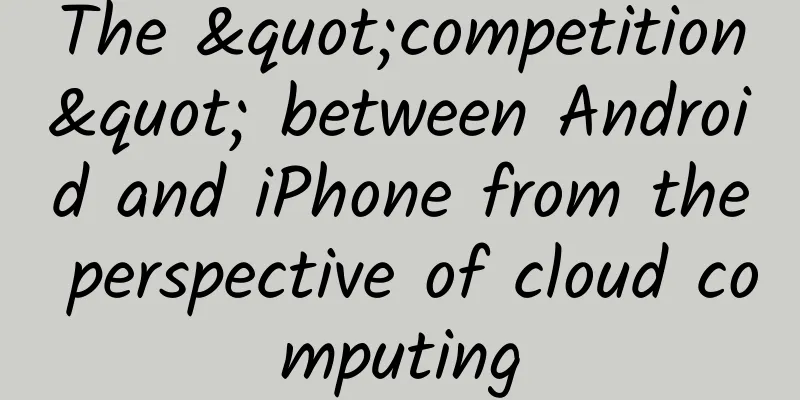The two Microsofts: From being caught between a rock and a hard place to having the best of both worlds?

|
Editor's note: This article is mainly based on Ben Thompson's article Two Microsofts. Ben Thompson is the founder of Stratechery. He has worked at Apple and Microsoft and has written a lot of articles on technology company strategy. If you want to read more articles about Ben Thompson on 36Kr, you can click here. One thing I used to worry about for Microsoft is that Microsoft seems to have been trying to balance the development of horizontal business (software services) and vertical business (hardware devices). But I don't think any company can do both business well at the same time. The reason is that the business goal of the horizontal business (software services) should be to have good performance on every device platform as much as possible, which is contrary to the vertical business. However, this situation changed after Satya Nadella took over as Microsoft CEO. His first major operation for Microsoft was to announce the launch of the iPad version of Office 365 subscription, which means that Microsoft finally puts the status of software services above hardware devices. Although charging users for software alone does not seem to be a viable business model today, I am still very happy that Microsoft has taken this step - at least, he finally has some focus. When Microsoft announced that the iPad version of Office apps no longer required an Office 365 subscription to be edited for free, I was even more shocked: How good a software service provider must be to be so unhurried in making money from software? In the past few days, Microsoft has shown me the rise of another business model. I think Microsoft is moving in a better direction, but Microsoft has not done enough. I once said that Microsoft should split itself into two so that software services can develop freely. Last week, a meeting at Microsoft headquarters revealed the fact that today's Microsoft is actually two completely different companies. But the dividing line is not hardware and software, but more like the business customers targeting the B-end and the ordinary users targeting the C-end. Of course, we must first make it clear that Microsoft will now, and for a long time to come, rely on traditional Windows and Office to obtain stable revenue from corporate customers and individual users. This is the result of Microsoft's previous strategic decisions. In this article, I will focus on some potential development opportunities today - that is, the strategic decisions that Microsoft can make today that will affect the future. From this perspective, Microsoft's decision to open Office products to iOS and Android systems for free means that Microsoft will give up the revenue from C-end paying users. Of course, Microsoft still has the Office 365 on Mac and PC, but we all know that mobile will be the future development trend. This decision is relatively rational for Microsoft. We can look at the business situation of enterprise customers and ordinary users separately: For ordinary users on the C side, Microsoft hopes to make money through hardware devices and advertising: Microsoft sells Surfaces, Lumias, Xboxes, and different operating systems, hardware, software services, etc. to ordinary users. They also have advertising-supported services such as Bing and Outlook. For business customers on the B side, the situation is completely different: Microsoft is fully focused on software services, especially Azure and Office 365 (business users still need to subscribe to use the iPad version of office applications). This arrangement actually makes sense: B-end enterprise customers and C-end ordinary users not only require different business models, but also different companies, market planning, sales chains, etc. with completely different focuses. The success model of Office 365 for enterprise customers is not suitable for ordinary C-end users, just like Xbox sold to users cannot be transformed into a big business for large enterprises. From this point of view, the setting of Office being free for iOS and Android systems is simply too reasonable: using free to lure ordinary users into Microsoft's huge ecosystem, even if they are only on the edge of the Office business. When I consider Microsoft as two completely independent companies, my anxiety about Microsoft is only one point: they are not doing enough, not being ruthless enough, and not doing things thoroughly enough. Especially the fact that the Office mobile app is not completely free. Microsoft is still a bit hesitant and short-sighted in the Office mobile office application. Now that most of the Office functions have been announced to be free, it also means giving up the profit model of Office on iPad. They still can't bear the pain and completely let go of this piece of meat. What is the use of these few restrictions on the Office iPad version? Not only will it annoy users, but it will also make people feel that Microsoft is not generous enough. More importantly, this will be an obstacle to Microsoft's overall reform. In addition, the question that interests me more is how long can Microsoft's fragmented state last? Microsoft has been doing a great job targeting corporate customers: Windows, Office and other services have been making a lot of money, and Office 365 and Azure are also doing well. But Microsoft is a completely different story for ordinary C-end users: Lumia and Surface can't make much money, Xbox One is also a bit tricky, and although Bing's growth is good, it's far from enough. But this situation is actually nothing to be surprised about. After all, Microsoft has always been so special: Microsoft has always been a to B company that has achieved great success in C-end users by relying on the monopoly of Windows. On the C-end user side, they have no reason to be more successful than they are now. The only question is whether Satya Nadella has the determination to change Microsoft. In any case, the gradual clarity of the business model is good news for Microsoft. |
<<: Apple's latest data shows that iOS 8 penetration rate is close to 60%
Recommend
Wu! Meng! Mountain! Connected! Mountain! Outside! Mountain! Who is Lady Shexiang in the song?
(This article is more effective when used with mu...
Teacher Li De's Four Pillars and Eight Characters Numerology Elementary, Intermediate and Advanced Videos 81 Episodes Summary
Teacher Li De's Four Pillars and Eight Charac...
"TikTok Enterprise Blue V White Paper" was released, and the number of daily active users has reached 150 million!
For a new user who has no idea about the product,...
Small video about making money, free download of Wang Tong SEO money-making training video tutorial!
Wang Tong, some people say he is a liar, some say...
How to think about operations during the epidemic?
It has been 2 months since I stopped publishing, ...
How to get more customers smartly?
If we divide the company's customer base base...
How to compile iOS projects 5 times faster
Preface Beiliao currently develops two apps, Beil...
Where is Google heading as its PC search business growth stalls?
Google 's financials have remained largely th...
Panshi SEO Training: Are original articles really effective for SEO?
I have seen many articles about the importance of...
Essential for lazy people: multiple pull-down refresh, pull-up to load more, and configure custom header ad space library
Introduction Developers can use BGARefreshLayout-...
A comprehensive guide to optimizing information flow ads!
Q1. My advertising has always been low in volume....
Popular Science | Using good methods to draw a "grain" landscape, from knowing how to plant to "smart" planting - Dialogue with Professor Ma Jun, a rice cultivation expert
Seeds are the chips of agriculture and the founda...
There are two ages most prone to "cliff-like aging". These habits that accelerate aging should be changed.
People usually do not age at a uniform rate, and ...
What is a CC attack and how is it different from a DDOS attack?
Some time ago, the website of a Shanghai gaming a...
Teach you step by step to publish your own CocoaPods open source library
Follow the steps below to publish your own cocoap...









